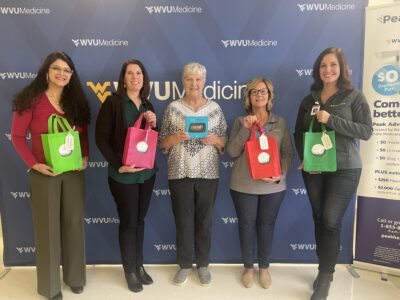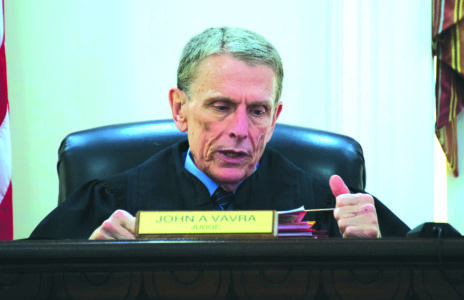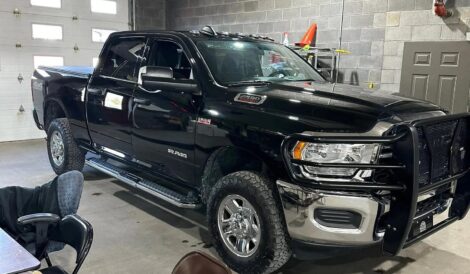Donation To Help WVU Medicine Wheeling Hospital Oncology Patients Stay Connected With Loved Ones

|Photo by Emma Delk| WVU Medicine Wheeling Hospital staff gathered on Friday to receive the 15 Amazon devices donated by the Hogan family from Don “Pappy” Morris’s wife and daughter. From left, Director of Hematology and Medical Oncology Bhavana “Tina” Bhatnagar, daughter Tina Hogan, wife Floy Morris, Chief Operating Officer and Vice President Kareen Simon, Vice President and Associate Vice President of Foundation and Community Relations Jess Rine.
A device that connected a man to his family during cancer treatment will now be available to other patients separated from loved ones.
The late Don “Pappy” Morris spent months battling the disease at WVU Medicine Wheeling Hospital. Communication with family during treatment was difficult for Morris due to loved ones living in other states and the COVID-19 pandemic.
One of the few ways Don could connect to family members separated by both distance and hospital protocols was an Amazon Echo device. Through the voice-activated display, Don could video chat with family members, receive photos and listen to music.
“Don would go to therapy, and the first thing he did when he came back was check to see if anybody sent him any photos,” described his daughter Traci Morris Hogan. “Seeing what was going on in our day was important for him, and it gave him hope.”
This same hope Morris found will now be available to 15 other patients at Wheeling Hospital’s Oncology Department through the Pappy Project. The program started by the Hogan family lends the devices to patients so they can stay in contact with their loved ones while in treatment.
“The biggest thing for my dad was that he was planning to get out of the hospital to be a part of all these things he saw we were doing each day,” described Hogan on the benefits of the Echo. “There’s not a lot to talk about when you’re in isolation all day, so all of our family being easy to reach for him made conversations easier.”
These conversations for Morris ranged from a video call with his niece while she was at the grocery store to footage of his grandson washing the 1997 Lincoln Continental Morris gave him.
Due to the device being a low-barrier piece of technology, anyone with a smartphone could be hooked into Morris’ contact list. On Morris’ end, all he needed was a wifi connection and to remember the name “Alexa” to get the device to call them.
The ease of communicating through the device is one Director of Hematology and Medical Oncology Bhavana “Tina” Bhatnagar is thrilled her patients will have. She noted that interactions with patients can become “awkward and clunky” when they are struggling to communicate what a doctor is telling them to family through speakerphone or Facetime.
Chief Operating Officer at WVU Medicine Wheeling Hospital Kareen Simon noted that “everything is easier” during treatment when a family has an understanding of what is going on during treatment and they can see their loved one in the hospital is okay.
“This will bring so much joy to our families,” said Simon. “It’s just a wonderful thing for us to make sure that the family understands the patient is safe, the patient’s doing well and they can always contact that patient.”
From the patient care perspective, Hogan found it simple to connect to the Echo and hear updates from doctors about her father’s treatment. The Hogan family was able to gain a clear understanding of what was occurring during each stage of Morris’ care.
Morris also enjoyed connecting with nurses by having them request songs to listen to on the device.
The 15 Echos donated by the Hogans will be distributed amongst Oncology Department patients based on the evaluation of the ward’s social workers. The devices will be handed out on a case-by-case basis, with immunocompromised patients being some of the first to see the Echo at their bedside.
The Pappy Project is funded by donations from friends, families and colleagues of Morris. Hogan hopes to see the program expand further so that one day all patients at Wheeling Hospital have access to the connectivity and hope that her father did.
“We just want to give back and break down those treatment barriers,” added Hogan. “The communities that we worked with during Don’s treatment were very supportive and helped us, and so we want to extend that help to others.”



